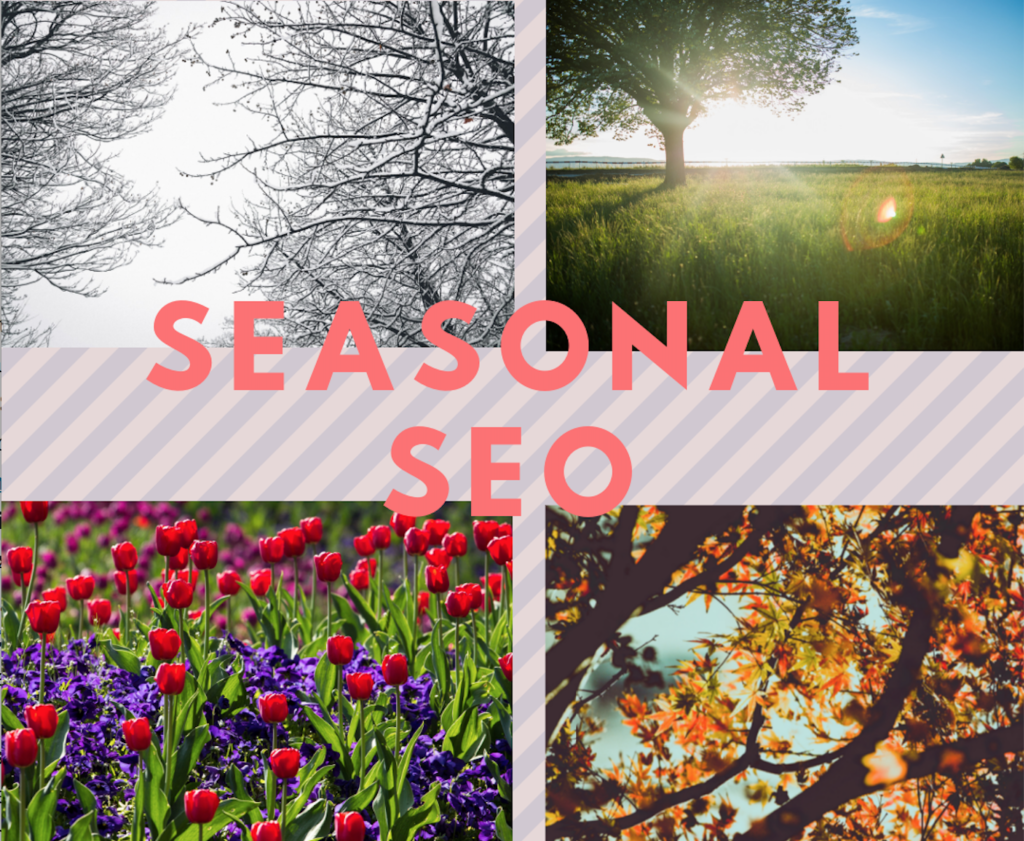
“According to a survey from UPS and Comscore, 51 percent of customers polled said they preferred shopping online” (Writer). With this popularity, search engines help people to find ideas for items to buy. “So, consider this obvious message here: The holiday season is the perfect time to attract shoppers to your website and maximize [holiday] sales” (Balkhi). Search Engine Optimization (SEO) is “the methods used to boost the ranking or frequency of a website in results by search engine, in an effort to maximize user traffic to the site” (dictionary.com). SEO can be all year long, or a specific times throughout the year with seasonal SEO. Seasonal SEO is not just for holiday related companies. There are four types of seasonal SEO: holidays, literal seasons, sales patterns, and trends and fads. “Every business has certain times of the year of peak season when it’s products or services become most desirable” (Giarratana). Holidays can include large ones such as sales around Christmas and Halloween, but also ones like sales around Labor Day. Literals seasons refers to items that relate to seasonal items and services like summer or winter clothing or items. Sales patterns means that a company might notice that certain times of the year have more sales than others. Trends and fads refers to items that are “temporary in nature” (DeMeyers). “For example, [one Etsy user’s] peeps knew that llamas were popular in 2018 so they could create products with that theme, but 2019 is the year of the sloth so they will have to keep changing to keep up with the trends” (Jacobsen). Using SEO in a seasonal way can help maximize results because they are more specified. “Seasonality impacts all businesses, no matter the location, your product or your services” (Giarratana).
Keywords are “words and phrases that identify what people are searching for as well as words and phrases that describe the topics you write about” (Hall). Related terms in google help find relevant and similar keywords. An important aspect of seasonal SEO is knowing when to target seasonal keywords. “If you choose to start targeting Christmas-related keywords in December, the shopping season will probably be over by the time you start to earn rankings for those keywords. To compensate for this, you’ll need to start several months before you intend to dominate the SERPs” (DeMeyers). To understand when to use those keywords, it is helpful to go onto a website, like KeywordDiscovery (http://www.keyworddiscovery.com) to see trends of when people search up those keywords. This takes a lot of time, “be sure to give your team at least three months to research, produce and optimized content around Seasonal SEO factors” (Giarratana). “Don’t take your cue from when the stores start sticking Halloween candy – do the research and find out what last year’s tends were so that you’re prepared this year” (Enge, Spencer, and Stricchiola). Seasonal SEO is worth it “if you know you’ll do this every year, if your competition is low enough, and if you have enough time to ramp up” (DeMeyers).
